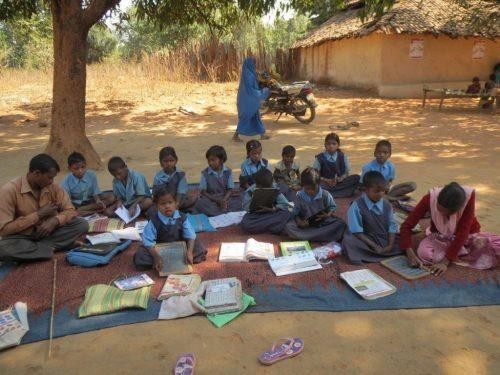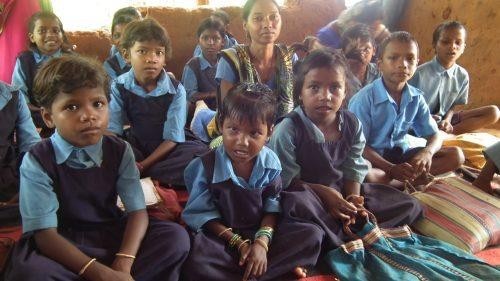How a School Is Giving Hope to Chattisgarh’s “Particularly Vulnerable” Pahadi Korba Tribe
- The only primary school in one of the most remote and backward regions of Chhattisgarh has brightened the future prospects of the Pahadi Korva tribes living here.
- It is the region’s first school since India’s independence and, notwithstanding the remote forests and deep rivers surrounding it, the children of Sardi village confess they are happy to come to study every day, come what may.
- Located in Kartala block, Korba district of Chhattisgarh, the village is inhabited by the Pahadi Korba tribe who belong to the Particularly Vulnerable Tribal Groups (PVTGs). The latter are a special class of tribal groups classified by the Dhebar Commission in the early 60s due to their especially low development indices when compared to other local tribes.
- The Pahadi Korba are mainly dependent on a pre-agricultural system of existence such as gathering of minor forest products, agriculture, and fishing with minimal population growth, and work as daily wage workers in neighbouring villages—some even weave bamboo baskets for a living.
- With the nearest school located at a distance of 7 km. (even the neighbouring village of Chittabooda has no school), children were forced to cross the surrounding deep forest and the wide Chuiyya river to reach the Madanpur school on a daily basis. Because of the extreme long distances and the endurance levels needed to cross the wide river, most children opted to stay at home instead.
- In the monsoons, the river swells to twice its usual size, and children yet again stay back in large numbers rather than venturing out to go to school.
- The school under a tree Set up in 2014, the school has generated much interest among the 21 tribal families currently living here, despite the fact that it continues to operate out of a hut made up of bricks and a thatched roof.
- Alma Baig, a teacher with the Gair Awasi Prarthamik Shala – simply translated to ‘No Building Primary School’ – says that she makes it a point to see that the families regularly send their children to school, even after two years.
- “When the school was initially set up, some families refused to send their children, as many tribals who work as daily-wage- labourers believed that their kids were better off working with them and earning money rather than going to school.
- I used to visit their homes five times a week to persuade them to send their children to study. We do have 22 students (4 boys and 18 girls) now, between the ages of 6-10 years.
- But, I still visit their homes to see that they don’t forget their promise,” says Alma. She is a graduate herself, and stays in the neighbouring village of Baghdari Dard, 2 km. away.
- Alma states that she finds her current task to be more fulfilling than a 9-5 regular desk job. “There are very few opportunities for tribals, and having a school in such a remote area definitely helps. I want the villagers to realize this and make full use of this opportunity,” she says. She adds that the children look forward to school everyday, and she too avoids taking a day off, unless necessary. The school is among the many successful initiatives of CRY-supported project Gram Mitra Samaj Seva Sansthan in the region.
- It came into fruition after at least five years of constant struggle and follow-ups with the government.
- Alma Baig with her students The organisation has been successful in getting the state to establish a school, as there were no primary schools here. They started building a perspective of the community regarding the provisions provided in the RTE Act of 2009. The community submitted an application to the education department and the collector, demanding a primary school.
- “With concerted follow-ups over the years, in early 2014, a school with two primary teachers was finally started. The school was conducted under the shade of a tree. It was only this year that the community built a temporary place to run it. The community has discussed the issue with the forest department. They have agreed to provide a regular space for the school,” says Dinesh Kakkoth, Associate General Manager (West), CRY.


